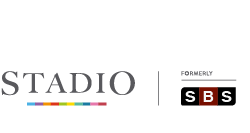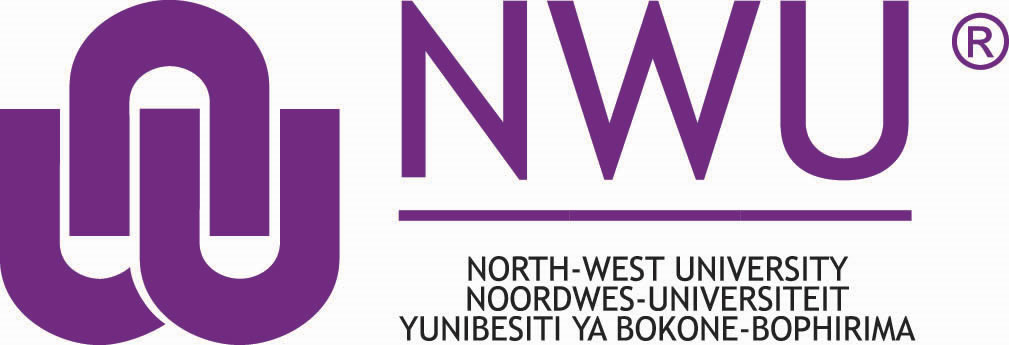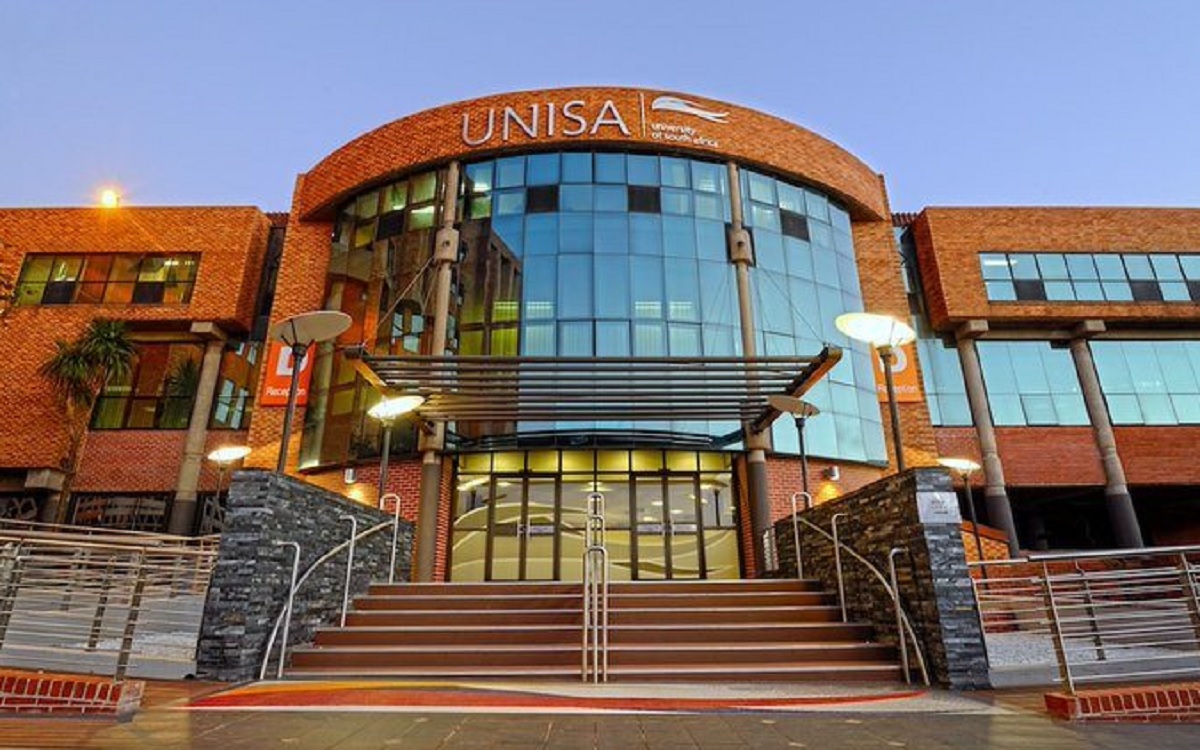Tourism Management: Major combinations for BCom:
NQF Level: 5: TRT101X or TRT1502, MNB1501, MNB1601
NQF Level: 6: TRT1602, TRT2601, MNG2601, MNM2033
NQF Level: 7: TRT3701 (TRT3018), TRT3702 (TRT3029), TRT3703 (TRT303A), TRT3705 (TRT305C)
Tourism Management: Major combinations for the Diploma:
NQF Level: 5: DTM1501, DTM1503 or TRT1502
NQF Level: 6: DTM1604 or TRT1602, DTM2601, DTM2603, DTM2604, DTM2605, DTM3609
NQF Level: 7: DTM3701, DTM3703, DTM3704 & DTM3705
| HOSPITALITY OPERATIONS – DTM2601 |
| Diploma |
Semester module |
NQF level: 6 |
Credits: 12 |
| Module presented in English |
Module presented online |
| Recommendation: TRT1602 or DTM1604 |
| Purpose: The purpose of the module is to equip students with a knowledge base of the hospitality industry through a thorough understanding of important terms, concepts and principles associated within the hospitality industry. Furthermore, qualifying students will have an overview of the hospitality industry, and a sound understanding of the accommodation; and the food and beverage sectors within the hospitality industry. Students are also made aware of the current and future issues that influence the hospitality industry. |
| TOURISM GOVERNANCE – TRT3705 |
| Under Graduate Degree |
Semester module |
NQF level: 7 |
Credits: 12 |
| Module presented in English |
Module presented online |
| Recommendation: TRT1601 or TRT1602 or MNG2601 (or MNG2016) |
| Purpose: The purpose of this module is to equip the learners with a well-rounded and systematic knowledge base in tourism and detailed knowledge of tourism governance. Students that successfully complete this module will be equipped with the ability to identify, conceptualize and demonstrate the legislation and policies with regard to tourism destinations and products, future trends in tourism, managing the impact of tourism and ensuring the sustainability of the tourism destination or product. |
| TOURISM DEVELOPMENT IIA – DTM2603 |
| Diploma |
Semester module |
NQF level: 6 |
Credits: 12 |
| Module presented in English |
Module presented online |
| Pre-requisite: TRT1502 or DTM1503 or TDV101T |
|
| Purpose: The purpose of learning is to introduce students to the various tourism development types and equip them with a sound knowledge of the development and management of tourism attractions, facilities and services. Students will have a sound understanding of terms, rules, concepts principles and theories of the different types of tourism development and attraction, facility and services management and development. Qualifying students will have insight on a typology of tourism development as well as applying their knowledge to the development and management of tourism attractions, facilities and services. |
| RESEARCH PAPER IN TOURISM MANAGEMENT – HRTRT83 |
| Honours |
|
NQF level: 8 |
Credits: 36 |
| Module presented in English |
Module presented online |
|
Co-requisite: HMEMS80 |
| Purpose: The purpose of this module is to enable students to grasp the first steps of the research process by designing a research paper. This includes an undertaking of an extensive literature review and the development of a research instrument (motivating the choice thereof). Particular emphasis is placed on students ability to apply research methods to selected tourism research focus areas, such as business and leisure tourism, ecotourism, hospitality and attractions management, inclusive tourism, transport for tourism and e-travel. The module provides a piece of sound knowledge and practical orientation on how to conduct research in the tourism field. Particular emphasis is placed on developing skills and knowledge regarding the research process. The research paper covers among other areas strategic research planning concepts, principles, tools and best practices on how to conduct research in the subject field of tourism. In addition, industry interaction and liaison (or practical case studies) is recommended to grasp the essence of the research module. |
| TOURISM DEVELOPMENT IIB – DTM2604 |
| Diploma |
Semester module |
NQF level: 6 |
Credits: 12 |
| Module presented in English |
Module presented online |
| Recommendation: TRT1602 or DTM1604 |
| Purpose: The purpose of learning is to introduce students to the nature and scope of tourism planning which is aimed at the integrated and sustainable development of tourism. Students will have a sound understanding of the role of government and policy formulation in tourism, which will support the economic, social and environmental goals of government. Students will further be equipped with the ability to interpret the different aspects of tourism development and policy formulation and to find the fit within the international, national and local strategies and policies. Qualifying students will be able to prepare and review tourism plans. |
| ADVANCED E-TRAVEL AND E-TOURISM – TRT4803 |
| Honours, Post Graduate Diploma |
Year module |
NQF level: 8 |
Credits: 24 |
| Module presented in English |
Module presented online |
| Purpose: The purpose of this module is to provide students with a comprehensive and systematic knowledge base of the management and marketing issues in electronic travel and tourism services and an in-depth knowledge in the following areas of specialisation: the hospitality sector, intermediaries, destinations, transportation, other uses of Information and Communication Technologies (ICTs), mobile systems and social media. Particular emphasis is placed on cases and solutions highlighting best practices and methods for exploiting ICTs from real-world international market leaders. The module aims to coherently present the application of ICT to the management of travel and tourism services; analyse technologies (hardware and software) used in the travel and tourism industry; and explain the process of electronic marketing of travel and tourism services from the perspective of the tourism provider, the intermediary, and the consumer. The module explores the newest developments in this field, analysing emerging trends, approaches, models and paradigms, and providing visions for the future of eTravel and eTourism. |
| CULTURAL TOURISM I – DTM2605 |
| Diploma |
Semester module |
NQF level: 6 |
Credits: 12 |
| Module presented in English |
|
| Pre-requisite: TRT1502 or DTM1503 or TDV101T |
|
| Purpose: This module introduces students to the cultural tourism industry and provides a framework of knowledge for analysing the complexity of cultural tourism. Students will have an informed understanding of important terms, concepts, principles, and theories of cultural tourism. The unit standard will be valuable to tourism students in the cultural tourism industry. Qualifying students are able to critically analyse complex concepts and developments within the cultural tourism context. |
| ADVANCED STRATEGIC TOURISM MANAGEMENT – TRT4861 |
| Honours, Post Graduate Diploma |
Year module |
NQF level: 8 |
Credits: 24 |
| Module presented in English |
Module presented online |
| Purpose: The purpose of this module is to enable students to apply the strategic management theories, and principles within the tourism establishments or destinations. The module provides a piece of sound knowledge and practical orientation with regard to the strategic management process as it pertains to the tourism industry. Particular emphasis is placed on developing a strategic tourism planning framework and exploring trends and developments in the macro-environment (Physical, social/cultural, economic, ethical, legal/political, technological and international). The study covers among other areas strategic planning concepts, principles, tools and best practices in strategic tourism management. In addition, practical case studies and industry interaction form part of this module. |
| CULTURAL TOURISM II – DTM3605 |
| Diploma |
Semester module |
NQF level: 6 |
Credits: 12 |
| Module presented in English |
|
| Pre-requisite: DTM2605 or CTR101J |
|
| Purpose: This module introduces students to the cultural tourism industry and provides a framework of knowledge for analysing the complexity of cultural tourism. Students will have an informed understanding of important terms, concepts, principles, and theories of cultural tourism. The unit standard will be valuable to tourism students in the cultural tourism industry. Qualifying students are able to critically analyse complex concepts and developments within the cultural tourism context. |
| ADVANCED TOURISM DEVELOPMENT AND ECOTOURISM – TRT4862 |
| Honours,Post Graduate Diploma |
Year module |
NQF level: 8 |
Credits: 24 |
| Module presented in English |
Module presented online |
| Purpose: This module equips students with a comprehensive and systematic knowledge base in the discipline of tourism and in-depth knowledge of tourism development and ecotourism. Students will have a detailed informed understanding of the economics of tourism, international cooperation in tourism, tourism demand and forecasting, and ecotourism as a form of sustainable tourism development. Qualifying students can identify with tourism in a development context and understand the challenges faced when implementing tourism in developing countries. Insight will be gained into key terminology, concepts, principles and theories regarding tourism economics, development and ecotourism. |
| TOURISM IN A PRACTICAL WORK CONTEXT IIIA – DTM3606 |
| Diploma |
Semester module |
NQF level: 6 |
Credits: 12 |
| Module presented in English |
|
| Recommendation: TRT1602 or DTM1604 or TDV101T |
| Purpose: The purpose of this module is to develop students’ practical competence in applying their theoretical knowledge to simulated situations within the tourism environment. Qualifying students will gain valuable insight into the practicalities of the travel sector of the tourism industry. |
| ADVANCED BUSINESS TOURISM – TRT4863 |
| Honours, Post Graduate Diploma |
Year module |
NQF level: 8 |
Credits: 24 |
| Module presented in English |
Module presented online |
| Purpose: The purpose of this module is to equip students with a comprehensive and systematic knowledge base in advanced business tourism and events management. This will enable them to critically analyse the context and business environment and to develop competence in planning and organizing successful events and business tourism-related activities. It will provide them with an integrated in-depth understanding of key management and marketing functions within the event organization encompassing methods and practical applications: coordinating, staffing, financing, marketing, and controlling. Finally, it will also help them to critically analyse some special issues, such as risk management, project management, evaluation and impact assessment, and sustainability. |
| TOURISM IN A PRACTICAL WORK CONTEXT IIIB – DTM3607 |
| Diploma |
Semester module |
NQF level: 6 |
Credits: 12 |
| Module presented in English |
|
| Recommendation: TRT1602 or DTM1604 or TDV101T |
| Purpose: The purpose of this module is to develop students’ practical competence in applying their theoretical knowledge to simulated situations within the tourism environment. Qualifying students will gain valuable insight into the practicalities of the hospitality sector of the tourism industry. |
| ADVANCED DESTINATION AND MARKETING MANAGEMENT – TRT4864 |
| Honours, Post Graduate Diploma |
Year module |
NQF level: 8 |
Credits: 24 |
| Module presented in English |
Module presented online |
| Purpose: The purpose of this module is to equip students with a comprehensive and systematic knowledge base in the discipline of advanced destination and tourism marketing management. Emphasis will be placed on the consumer and the marketing mix in travel and tourism, planning for marketing strategy and short term-operational objectives and campaigns, communicating with and influencing consumers and applying marketing in the main sectors of travel and tourism. |
| TOURISM IN A PRACTICAL WORK CONTEXT – DTM3609 |
| Diploma |
Year module |
NQF level: 6 |
Credits: 24 |
| Module presented in English |
Module presented online |
|
Co-requisite: DTM2601, DTM2602 or TRT2601, DTM2603, DTM2604, DTM2605, DTM3605 |
| Recommendation: Students should have passed TRT1502 and TRT1602 or DTM1501 and DTM1502 before registering for this module or should have passed DTM1602, DTM1604 or TDV101T before registering for this module. |
| Purpose: The purpose of this module is to develop students’ practical competence by applying their detailed theoretical knowledge to simulated situations within the tourism environment. Qualifying students will gain valuable insight into the practicalities of the travel and tourism industry, which is composed of different, but inter-related industries. |
| SECONDARY FACTORS OF TOURISM – TRT1602 |
| Diploma, Under Graduate Degree |
Semester module |
NQF level: 6 |
Credits: 12 |
| Module presented in English |
Module presented online |
| Pre-requisite: TRT1501 or TRT1502 or DTM1503 |
|
| Purpose: The purpose of this module is to equip students with knowledge of secondary aspects of tourism management. Qualifying students will have an awareness of the relationship between supply and demand with specific reference to transportation, marketing and distribution within the tourism context. Students will have a detailed knowledge of tourism enablers and more specifically the management, planning and development, sustainability and policies that apply to tourism. Students will have to gather information from a range of different sources (including journal articles) and utilise this information in discussions regarding the secondary aspects of tourism management. |
| TRANSPORT FOR TOURISM – TRT2601 |
| Under Graduate Degree |
Semester module |
NQF level: 6 |
Credits: 12 |
| Module presented in English |
Module presented online |
| Recommendation: TRT1601 or TRT1602 or TRT101X |
| Purpose: The purpose of this module is to equip learners with a well-rounded, in-depth knowledge base of the transport in the tourism industry within the context of tourism management. Students should be able to discuss the concepts, principles and theories relating to the structure of transport; transport and government policy; demand and supply of transport; air, water and land transport. |
| TOURISM DEVELOPMENT IIIA – DTM3703 |
| Diploma |
Semester module |
NQF level: 7 |
Credits: 12 |
| Module presented in English |
|
| Pre-requisite: DTM2603 or TDV201T |
|
| Purpose: The purpose of learning is to equip students with detailed knowledge of the sustainable tourism development and integrated environmental management. Students will have a coherent and critical understanding of terms, rules, concepts, principles and approaches of sustainable tourism development and integrated environmental management. Qualifying students will have insight on managing environmental and socio-economic impacts to achieve sustainable tourism as well as applying their knowledge to the development and management of tourism. |
| TOURISM DEVELOPMENT IIIB – DTM3704 |
| Diploma |
Semester module |
NQF level: 7 |
Credits: 12 |
| Module presented in English |
|
| Pre-requisite: DTM2604 or TDV201T |
|
| Purpose: The purpose of learning is to equip students with detailed knowledge of the general principles of the implementation of tourism development as well as how various management tools can be applied in tourism development. Students will have a coherent and critical understanding of terms, rules, concepts, principles and approaches of project management and management tools in tourism development. Qualifying students will have insight on and will be able to apply their knowledge of the implementation and management of a tourism development. |
| HOSPITALITY MANAGEMENT – TRT3701 |
| Under Graduate Degree |
Semester module |
NQF level: 7 |
Credits: 12 |
| Module presented in English |
Module presented online |
| Recommendation: MNG2601 (or MNG2016) or TRT1601 or TRT1602 |
| Purpose: The purpose of this module is to equip students with a broad overview of the hospitality sector within the tourism industry. Students will have an informed understanding of important terms, concepts and principles, and will be aware of the environment in which hospitality organisations operate. Qualifying students can identify different types of hospitality establishments, and are able to make an effective selection and application of the fundamental procedures, operations and techniques within each of the departments within the hospitality sector. |
| TRAVEL OPERATIONS – DTM1501 |
| Diploma |
Semester module |
NQF level: 5 |
Credits: 12 |
| Module presented in English |
Module presented online |
| Purpose: To equip students with the operational knowledge and skills required in the various sectors of the travel operation industry. These sectors include air, rail and coach transportation as well as car hire, cruises and accommodation. Students will have an informed understanding of the concepts and workings of foreign exchange and travel insurance. Qualifying students will be able to understand and use travel operations language and interpret codes, terms and definitions that are commonly used in the travel industry. |
| SPECIAL INTEREST TOURISM – TRT3702 |
| Under Graduate Degree |
Semester module |
NQF level: 7 |
Credits: 12 |
| Module presented in English |
|
| Recommendation: MNG2601 (or MNG2016) or TRT1601 or TRT1602 |
| Purpose: The purpose of this module is to equip learners with a well-rounded, systematic knowledge base of special interest tourism and visitor attraction management. Qualifying students will have the ability to demonstrate a coherent and critical understanding of the concepts, principals and theories relating to nature based tourism (eco-tourism, adventure tourism and culture tourism), special events (with specific reference to festival tourism, food – and wine tourism and sport tourism) and visitor attraction management. |
| PRIMARY FACTORS OF TOURISM – TRT1502 |
| Under Graduate Degree,Diploma |
Semester module |
NQF level: 5 |
Credits: 12 |
| Module presented in English |
Module presented online |
| Purpose: The purpose of this module is to expose students to the primary factors of tourism management, including the history of tourism. Students should be able to identify and define the different aspects within tourism demand, with specific reference to tourist motivation and tourist markets. Students will also need to identify and define the different aspects within the supply of tourism, with specific reference to destinations, hospitality, and attractions and entertainment. Students will need to gather and collate information from a range of different sources to arrive at an informed understanding of demand and supply within tourism management, and demonstrate sound practice of key skills. |
| TOURISM DISTRIBUTION – TRT3703 |
| Under Graduate Degree |
Semester module |
NQF level: 7 |
Credits: 12 |
| Module presented in English |
|
| Recommendation: MNG2601 (or MNG2016) or TRT1601 or TRT1602 |
| Purpose: The purpose of this module is to equip learners with a well-rounded, systematic knowledge base of the functioning of the tourism distribution system within the context of tourism management. Qualifying students will have the ability to demonstrate a coherent and critical understanding of the concepts, principals and theories relating to the role of information and information technology in tourism; the channels of distribution in the tourism industry and more specifically in the airlines, hotel industry, and specific destinations; distribution via the internet and competitive strategies and future trends in tourism distribution. |
| BUSINESS TOURISM – DTM3701 |
| Diploma |
Semester module |
NQF level: 7 |
Credits: 12 |
| Module presented in English |
|
| Pre-requisite: TRT1602 or DTM2601 or TTP2M1T |
|
| Purpose: The purpose of the Business Tourism module is to equip students with a well-rounded and systematic knowledge base of meetings, incentives, conferences and events (Business Tourism). Students will have a coherent and critical understanding of important terms, concepts and principles used in meetings, incentives, conferences and events. Students will be able to present and communicate information and own ideas and opinions in well-structured arguments with conference industry members, and will demonstrate an effective selection and application of essential procedures, operations and techniques to successfully plan and co-ordinate a small event, conference or incentive package. |



